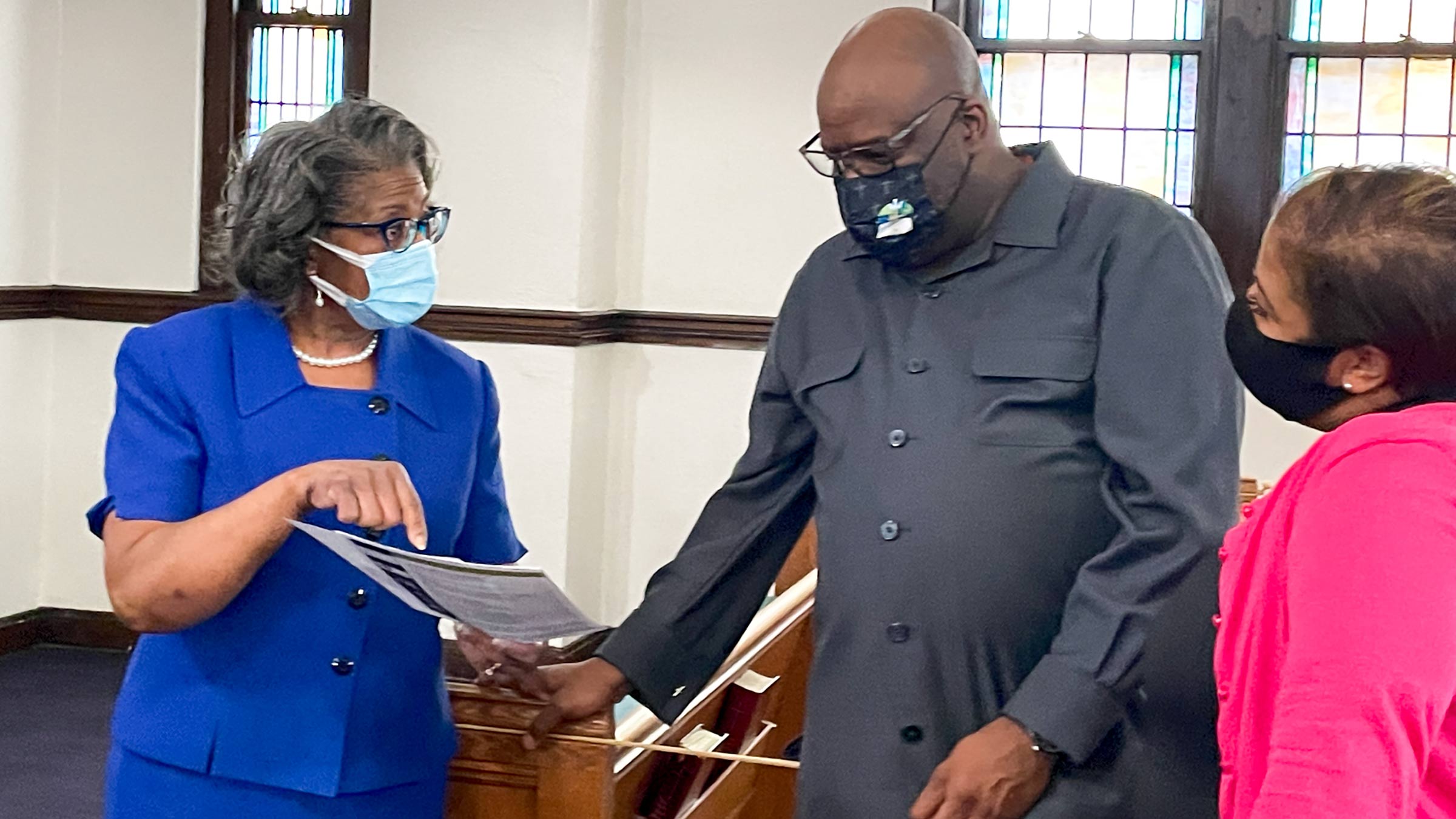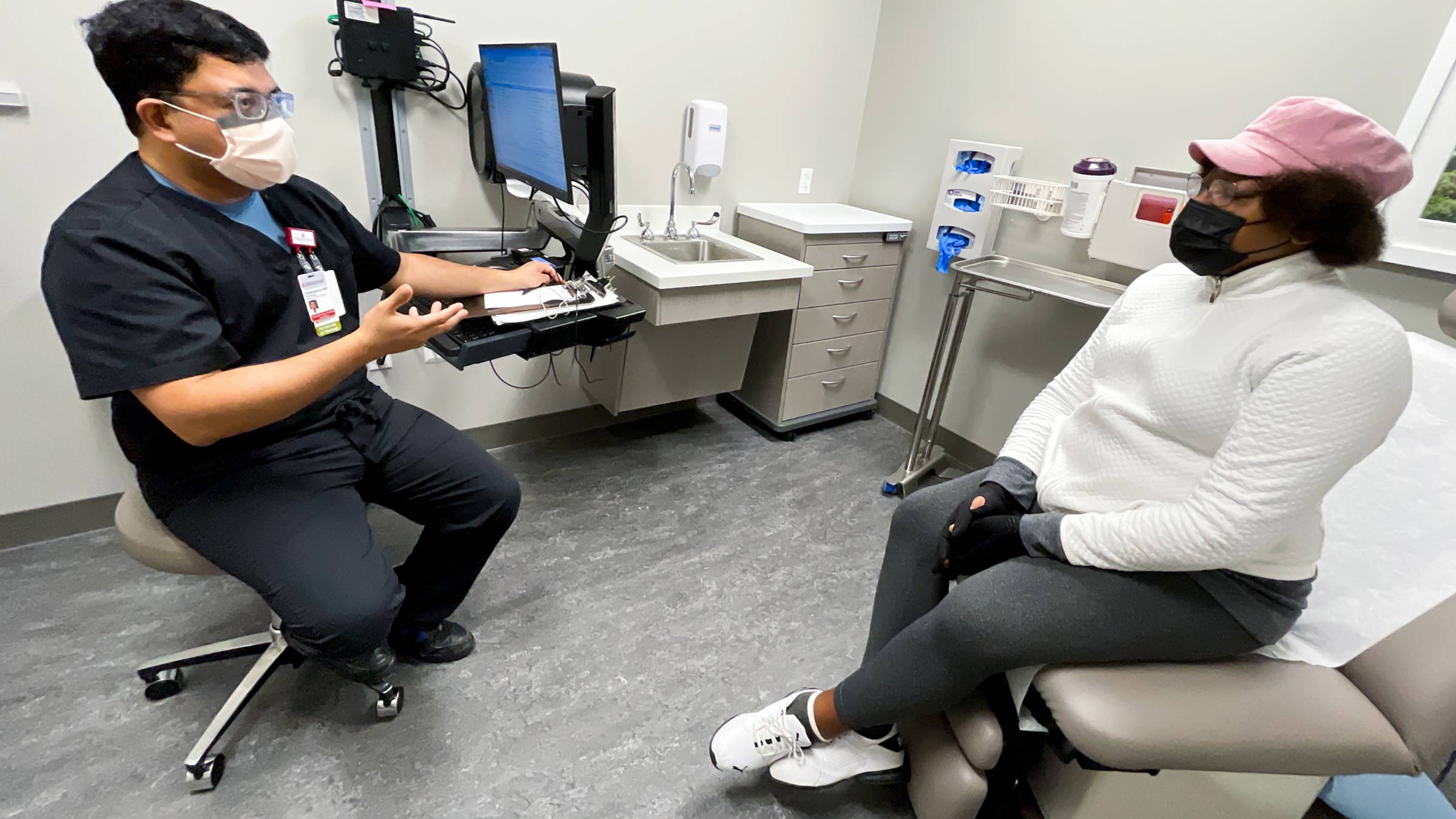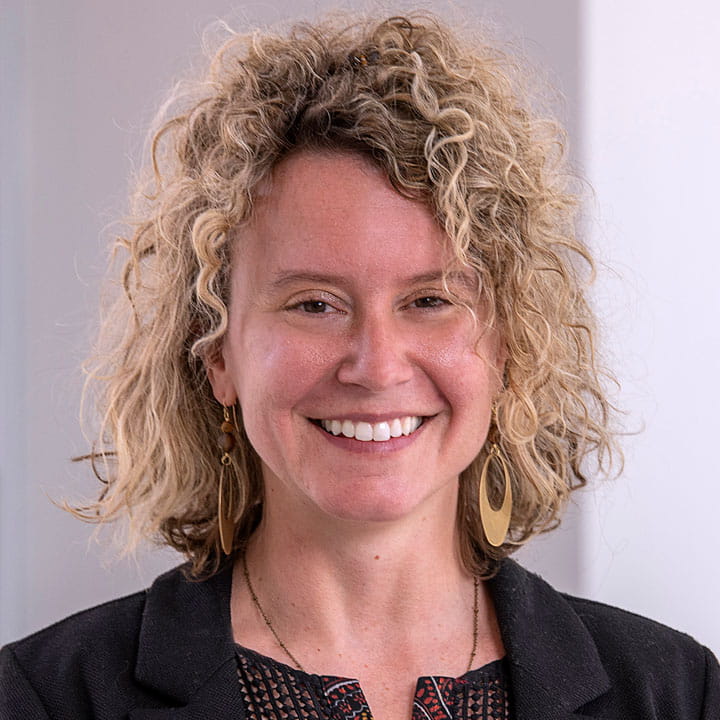‘No one should die of cancer because of fear’ — new initiative takes screening tests directly to community

Janet Sheppard has a personal message. She wants people to hear about colorectal cancer screening. As a nurse educator, assistant pastor and strong leader in her community, she isn’t shy about using her voice and story to encourage people to get timely cancer screenings.
“Some people say, ‘If I don’t know about it, I won’t have to deal with it.’ But you will absolutely have to deal with it, and it could take your life. No one should die of colorectal cancer out of fear of testing,” says Janet, who had two precancerous polyps removed during a colorectal cancer screening test.
But thousands of people do die each year of colorectal cancer, despite having a reliable test that can detect changes in a precancerous stage. This is especially pronounced in the Black community, where individuals are 40% more likely to die of colorectal cancer compared with their non-Hispanic white counterparts.
“I had no symptoms, no pain — and by the time most people have symptoms or pain, they have advanced disease. Prevention and early detection save lives, and I am living proof of this,” Janet adds. “I say if people who need the screening won’t come to you, let’s take it to them out in the community.”
Ohio State is doing just that through a pilot program aimed at removing barriers to care — such as cost, travel, taking time off work or hesitation to undergo a traditional colonoscopy — by mailing at-home colorectal cancer screening kits to 400 patients who qualify for — but have not yet received — a colorectal cancer screening exam. Doctors estimate 5-10% of the patients who complete these tests will need a follow-up screening colonoscopy exam.
The initiative is part of a larger, research-backed community outreach effort aimed at addressing disparities in health that is being conducted by The Ohio State University Comprehensive Cancer Center – Arthur G. James Cancer Hospital and Richard J. Solove Research Institute’s Center for Cancer Health Equity in partnership with The Ohio State University Wexner Medical Center. The approach is based on published research authored by Electra Paskett and colleagues at the OSUCCC – James.
“Our goal is to increase colorectal cancer screening in this historically underserved population. The program was designed to make it easy for disproportionately affected groups — specifically Black men and women between the ages of 45 and 75 — to receive timely colorectal cancer screening tests,” explains Dr. Subhankar Chakraborty, a gastroenterologist with the OSUCCC – James and Wexner Medical Center who is involved in the project.

New approach to historical challenge
Previously reported peer-reviewed research studies confirm widening incidence and survival rates between white and Black Americans, noting that one in every 24 Black Americans will develop colorectal cancer.
Chakraborty says it can take 10-15 years for polyps to develop into cancer, and they nearly always occur without symptoms — so screening for precancerous polyps is an important early detection and prevention tool.
In this new pilot project, people will receive at-home test kits that can detect microscopic amounts of blood in the stool, an early sign of colorectal cancer. Each kit includes materials to collect and return a stool sample for medical evaluation. Nurses then contact participating individuals who have an abnormal finding to explain the test results, and then to discuss and potentially schedule a follow-up colonoscopy.
Colonoscopy is an established screening procedure that uses a tiny camera to look inside the rectum and colon for signs of cancer. During this test, specialists can identify and remove growths called polyps. Polyps are small clumps of cells in the lining of the colon or rectum. Some polyps are precancerous and can develop into cancer if left to grow.
Colorectal cancer screening information
Individuals are encouraged to contact their primary care providers regarding the colorectal cancer screening approach that is right for them.

Schedule a screening colonoscopy at Ohio State
Call 614-293-6255 to schedule your colonoscopy today.
Learn more about colonoscopy





